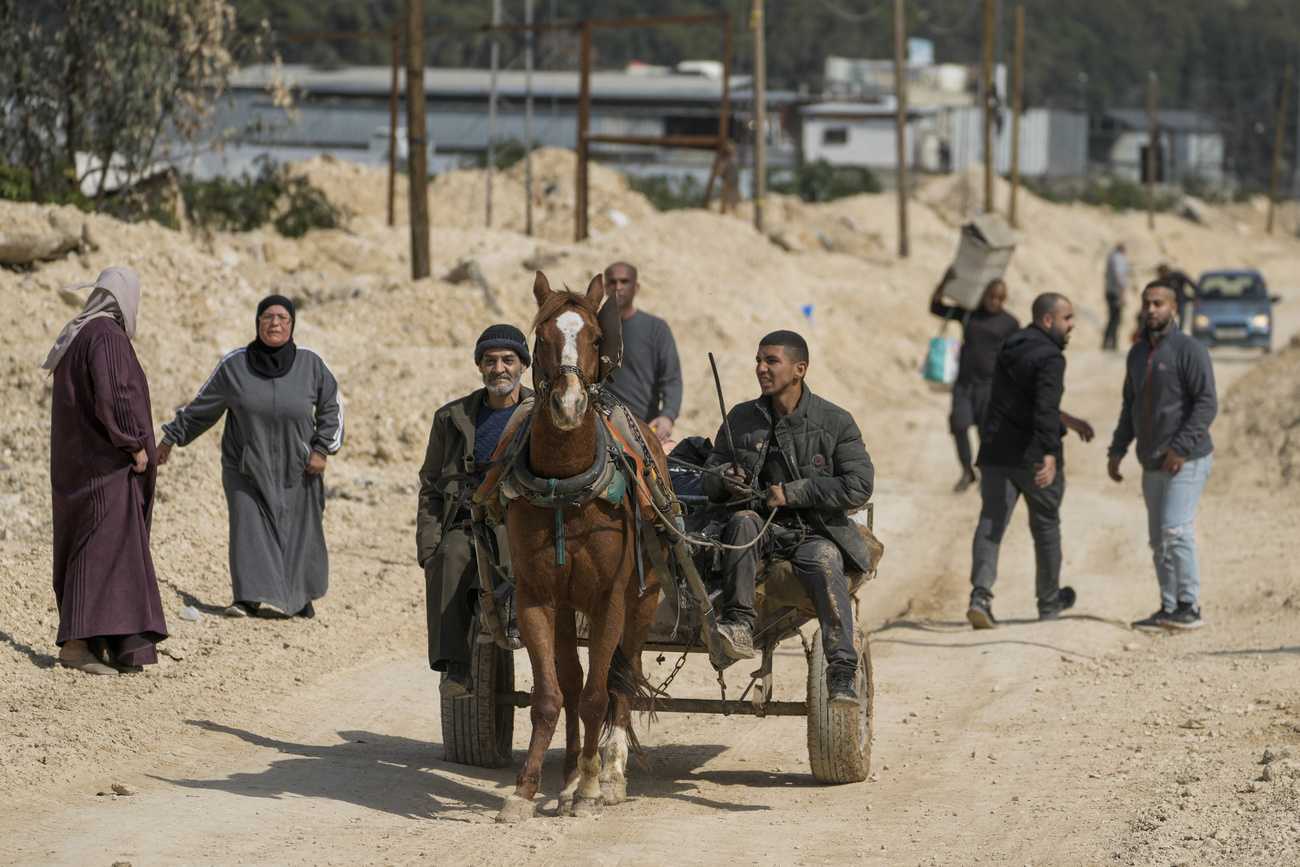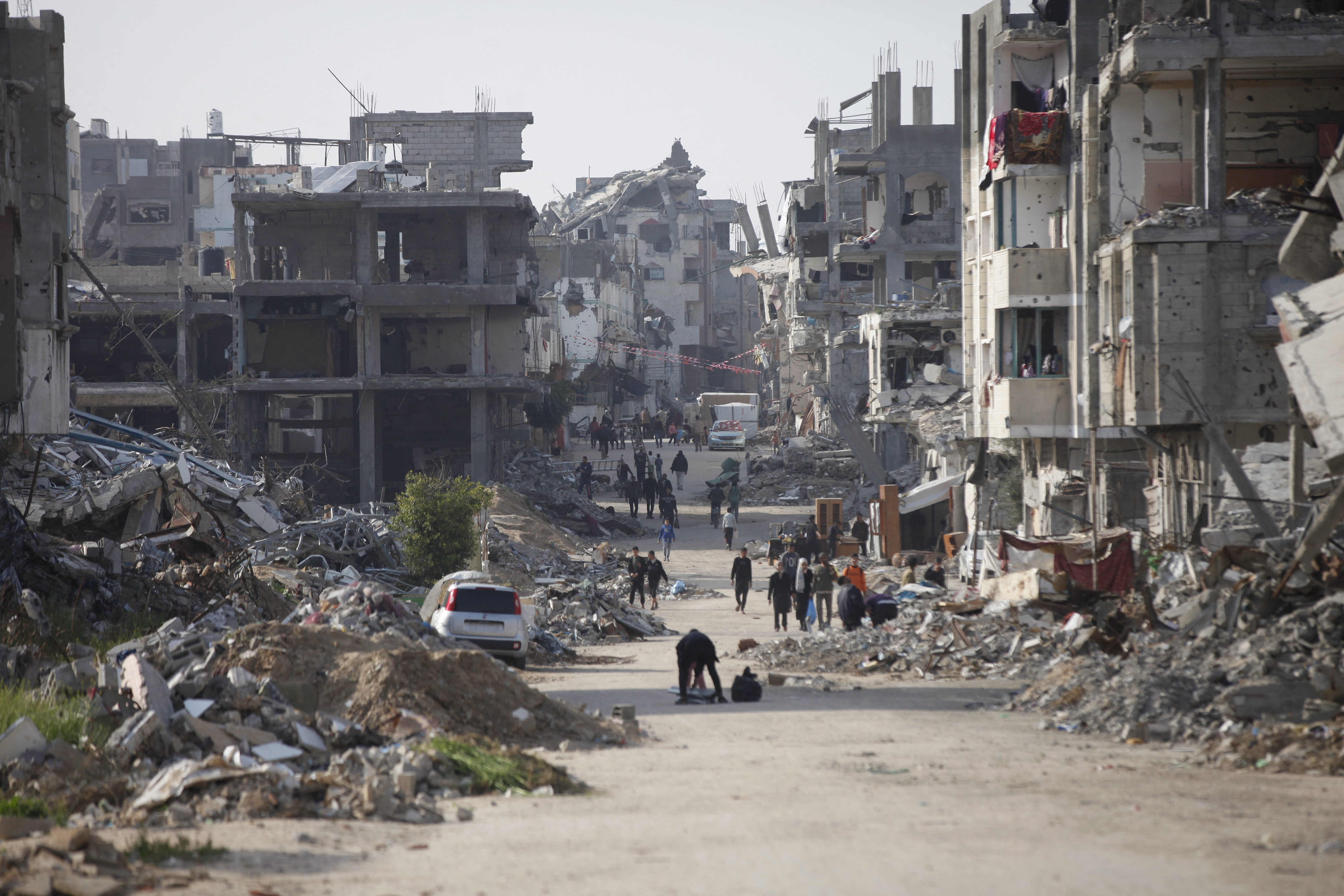Failure of Middle East conference in Geneva reflects ‘too divided’ international society

Late on Thursday, Switzerland cancelledExternal link a conference on the application of the Geneva Conventions to the occupied Palestinian territories for want of participants, after some countries expressed dissatisfaction.
“This conference would probably not have had any substantial impact on the ground. But the fact that not even a minimum consensus was reached shows how divided international society is in this conflict,” says Laurent Goetschel, director of the Swiss Peace Foundation swisspeace.
Switzerland had invited 196 parties to the conventions to participate in Friday’s conference in Geneva on the situation of civilians living in the West Bank, Gaza and East Jerusalem.
The conference was set to address the Fourth Geneva Convention, part of a series of international treaties agreed in 1949 after the Second World War, which defines humanitarian protections for civilians living in areas of armed conflict or occupation.
Diplomatic sources speaking to SWI swissinfo.ch on condition of anonymity said the Swiss foreign ministry had become increasingly nervous in recent weeks. Israel has officially condemned Switzerland for hosting the event, which it sees as “part of the legal warfare against Israel”.

More
The international conference that Switzerland doesn’t want but must organise
The Permanent Mission of Israel to the United Nations in Geneva said the Swiss decision to convene the conference “at this sensitive juncture demonstrates that this conference serves merely as another platform to attack Israel, a democratic country, and embolden terrorist organisations that have shown utter disregard for humanity and the law”. It also comes at a time when Israel enjoys close ties with the new Trump administration in the United States.
The conference was set to run for not more than a couple of hours and was to conclude with the publication of a joint declaration. The United States and Israel had said they would not attend. Late on Thursday Arab states said they would not attend either.
‘Reflection of reality’
Ambassador Franz Perrez, who was responsible for leading the process, explained at a press conference that a “sufficiently critical mass” of participating states had not materialised. Ultimately, it was a “reflection of reality” that no agreement could be reached. However, he emphasised that no state questioned the Geneva Conventions as such.
A draft of the final declaration seen by SWI swissinfo.ch states that “the participating High Contracting Parties emphasise the continued applicability and relevance of the Fourth Geneva Convention in the Occupied Palestinian Territory, including East Jerusalem, which all High Contracting Parties have undertaken to respect and ensure respect for in all circumstances”.
In a letter to the UN seen by SWI swissinfo.ch, the Organisation of Islamic Cooperation, which includes 57 members, said the declaration “did not reflect the gravity of the situation on the ground or the serious violations and grave breaches of IHL (international humanitarian law) by Israel in the OPT (occupied Palestinian territories)”.
The Palestinian ambassador to the UN in Geneva, Ibrahim Khraishi, told Reuters news agency that his delegation did not plan to attend the event either.
The Swiss foreign ministry would have considered the participation of at least 128 countries to be a success. That’s how many came together for the last such conference in 2014. “But it’s also important who comes,” Goetschel said. “It became apparent that too few and the ‘wrong’ ones were expected – in other words, those who have little influence on the conflict.”
He does not believe that the cancellation of the conference reflects badly on Switzerland. “As a depositary state, it’s a kind of secretariat for the Geneva Conventions. If no agreement is reached because the international community is too divided, you can hardly blame Switzerland.”

More
Middle East conference in Geneva aims to revive international humanitarian law
Fragile ceasefire
The conference comes after 15 months of war between Israel and the Palestinian militant group Hamas has displaced nearly all of Gaza’s two million inhabitants several times within the Gaza strip, killed at least 48,000 Palestinians, according to figures of the Gaza Health Ministry, and destroyed much of the infrastructure in the Palestinian.
According to ReutersExternal link, Israel says Hamas and allied Palestinian militant groups killed around 1,200 people in the attack on October 7, 2023, and abducted another 251. Israel says it has also lost more than 400 troops in the fighting.
Although a fragile ceasefire is holding in Gaza, Israel has temporarily banned the import of aid, and violence has been increasing in the West Bank for months. Switzerland and other European countries fear the conference could have had a negative impact on the conflict.
In the weeks leading to the conference diplomats had said some states would like to keep the conference as neutral as possible and not mention any specific “country situation” to avoid it negatively impacting future negotiations on the next steps to the ceasefire deal between Israel and Hamas.
Additional reporting by Annegret Mathari.
Edited by Virginie Mangin/ts

In compliance with the JTI standards
More: SWI swissinfo.ch certified by the Journalism Trust Initiative








You can find an overview of ongoing debates with our journalists here . Please join us!
If you want to start a conversation about a topic raised in this article or want to report factual errors, email us at english@swissinfo.ch.